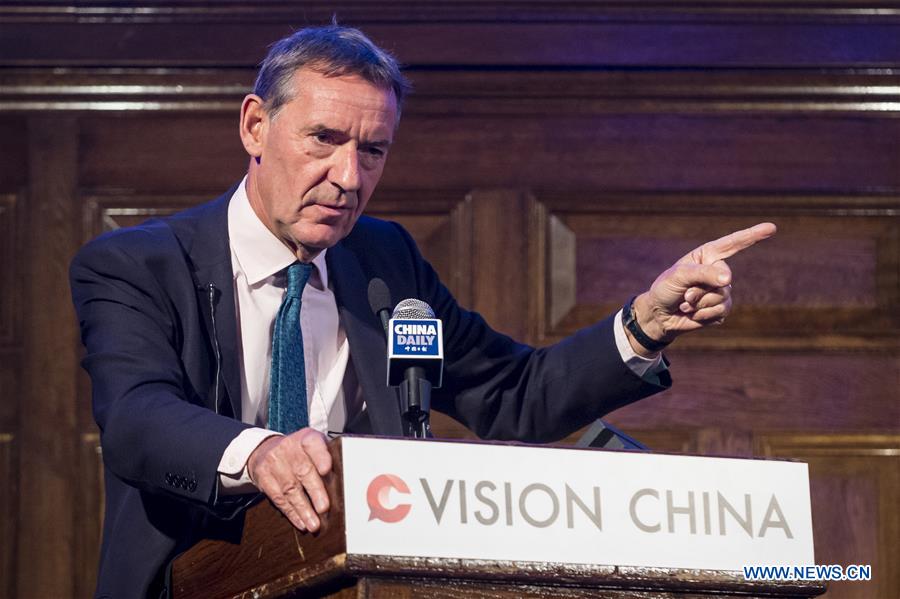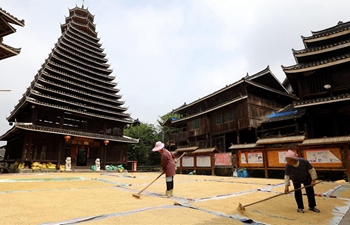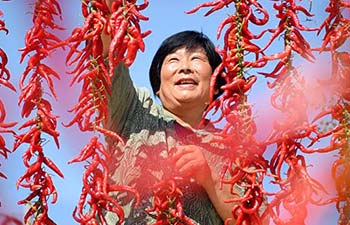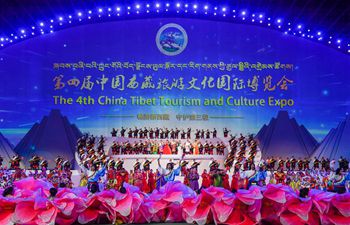
Jim O'Neill, chairman of renowned British think tank Chatham House, speaks during a forum themed "40 Years on: China and the World" in London, Britain, on Sept. 13, 2018. Some of the most renowned British scholars on Thursday spoke highly of China's reform and opening up policy which, initiated 40 years ago, continues to transform the county itself and impact the world at large. (Xinhua/Stephen Chung)
LONDON, Sept. 13 (Xinhua) -- Some of the most renowned British scholars on Thursday spoke highly of China's reform and opening up policy which, initiated 40 years ago, continues to transform the county itself and impact the world at large.
China's reform and and opening up initiated in 1978 was "one of the most important events in the 20th century," said Martin Jacques, a professor at Cambridge University, during a forum here themed "40 Years on: China and the World".
It led to "not only the transformation of China, but the beginning of the transformation of the world," and "No one could have imagined where China would be 40 years later," said Jacques.
The reform and opening up policy, initiated by late Chinese leader Deng Xiaoping, required a new mentality back then under enormous conservative pressure and unleashed profound intellectual and political energy which led to where China is today, said the scholar.
China, with its new perception of socialism, has offered "a new example" and "a new possibility" to the world, he said.
"At the heart of Deng's reform policy is innovation," a policy that China prioritizes today, said Jacques.
Meanwhile, Jim O'Neill, chairman of renowned British think tank Chatham House, said China has had the most astonishingly long period of very high economic growth, something the world has never seen before.
To continue its success, O'Neill, former Goldman Sachs chief economist known for coining the acronym of BRIC in 2001, said China needs to continue to increase the share of consumption in its GDP, further control pollution of the environment, and continue, slowly, the opening of its financial sector.
The Belt and Road Initiative is "possibly one of the most important thing for the future world trade," he said.
Proposed by China in 2013, the Belt and Road Initiative aims to build trade and infrastructure networks connecting Asia with Europe and Africa along the ancient Silk Road routes.
Nikhil Rathi, chief executive of the London Stock Exchange Plc, said China is one of the most exciting capital markets in the world, and is on track to be among the largest.
"We are embarking at the London Stock Exchange and with our friends in Shanghai, under the umbrella of China-UK governmental cooperation, on the Shanghai-London Stock Connect. We are looking forward to further milestones on that project this year. This is a project which will allow global investors to benefit from China's growth through London, and UK-listed companies will be able to access Chinese investors directly," said Rathi.
Chinese Ambassador to Britain Liu Xiaoming, among the dignitaries attending the forum, said China has made great achievements thanks to its down-to-earth approach, undaunted courage, and an open and inclusive attitude.
"It was a hard lesson from recent history," said the ambassador, referring to the seclusive and closed-door policies China adopted during the Qing Dynasty which led to its backwardness and ultimately aggression by foreign powers.
The ambassador reiterated China's determination to continue its reform and opening up efforts, against tides of protectionism.
"Without reform and opening-up, China could not have achieved so much today; without further reform and opening-up, China will not have a bright future," he said.
He said China's reform and opening-up will provide the world with a powerful engine for growth, a big market, policy and market opportunities.
In particular, China will strive to increase imports to meet demand of Chinese consumers and promote global trade, he said.
The first China International Import Expo (CIIE) will be held in Shanghai in November. As an upgrading consumption sector reshapes China's economic and trade structure, the CIIE is expected to give new impetus to such a transition and make China's market more accessible than ever.
China has been the world's second largest importer of goods for nine consecutive years and made up 10.2 percent of global imports last year. Chinese authorities expect the country to import goods worth 24 trillion U.S. dollars in the next 15 years.











